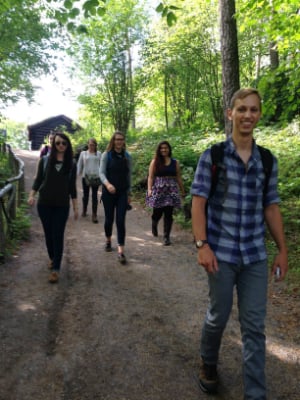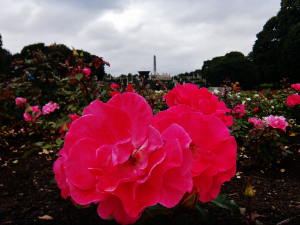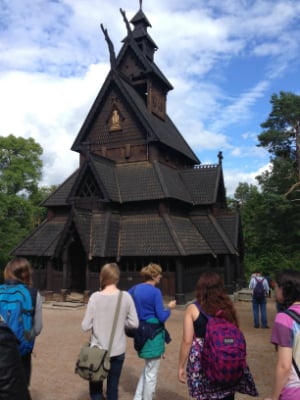Did YOU study or intern abroad? If so, where and what inspired you to go?
Alex: During my undergraduate career, and even afterwards, I focused on my academic attention on Central Europe, especially Slovakia, Czech Republic and Poland. Naturally, my interest in the region fueled my desire to study abroad there.

I worked full-time or nearly full-time throughout the bulk of my college career, so I didn't see a full semester or year abroad as an option. Instead, I settled for short-term options.
During the last couple years of undergraduate work, I did a summer language program in Košice, Slovakia and a short-term program in Prague and Krakow, which would eventually lead to my first job after graduation.
Before leaving on my first summer abroad in Slovakia (it would become the first of many), I had no sense of the important role it would play in my life. At the time, it was about learning the language and getting a better sense of the context for my studies.
However, after unpacking my bag in an unfamiliar flat, shared with two young guys from Palestine and one from Japan, I started to realize that there was something very special about the experience I was about to have.
With "bad Slovak" as our lingua franca, we had some of the most embarrassing misunderstandings and the most rewarding successes. My classmates were likewise "international," and the summer became just as much about dialog and understanding as about language learning.

While there is immense value in abroad opportunities that are designed to immerse a student in one specific culture, I've always been partial to programs that also create a meeting point for individuals from many cultural traditions.
That's one of the wonderful things about the Norway program. Students live in a student village primarily populated by international students. Also, the student orientation groups and some of the voluntary student associations are very international, putting them in an environment where they can get to know people from many different countries and cultural traditions.
To borrow the slogan from our program's hosts at the University of Oslo's International Summer School, "Come to Norway, meet the world." Yep, that's what I find inspiring about study abroad.
Why do you think HECUA’s model of internships + classroom time is so effective?
Alex: Well, I believe the combination of the two is important- and effective- for a number of reasons, but in Norway, there is an added importance attached to the internship/volunteer component.
First off, in the Norway program, we usually refer to it as a volunteer placement and not an internship. In the Norwegian context, there is not a long established tradition of internships.
That being said, traditional American understandings of internships are becoming more and more common in Norway, especially in the business world. Volunteering, on the other hand, finds a long tradition in Norway.
Since we place students in NGOs, community organizations, and the youth wings of political parties, it makes more sense for our partners to discuss these positions as volunteer placements.

But as I was saying, there is an additional benefit to the volunteer placement in a place like Norway, and it has something to do with "being a part of something." Visitors to the country often remark that it's difficult to break into already existing social groups and meet new people; that the boundaries of these groups seem rather fixed.
Volunteering, then, provides an important way to squeeze between the fence posts of these established groups. It allows the students to break into Norwegian society to learn about how people talk about diversity, solidarity, immigration, or any of the topics of our study.
These volunteer placements provide not only an insight into how these organizations function and how they formulate their goals, but they provide an insight into how society in general functions- in a much better way than can be explained in a classroom.
How have you changed/grown since working for HECUA?
Alex: Throughout my college career, I was always taught that research (and teaching) was part of one world and activism was part of a completely different world. Never the two should meet. And if they did meet, it meant that there was some sort of deficiency in the research; that is was tainted in some way.
One of the biggest changes that has occurred for me personally since I started with HECUA, is that I have found ways to bring together these two worlds that I once thought so distinct, so separate.
While I'm not doing much research these days, I am formulating research plans and working with others on small scale research. The difference is, now, not only do I have a research goal, but I have found a place for a research mission as well.